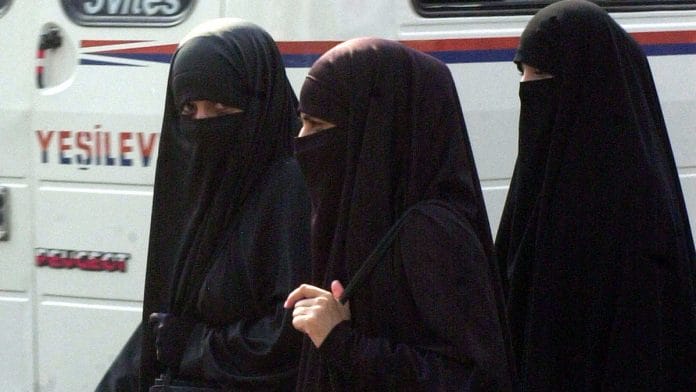New Delhi: With the Narendra Modi government introducing a fresh triple talaq bill in Parliament Friday, the contentious practice of instant divorce, practiced by some Islamic sects, is back in the news.
The government is seeking to push the Muslim Women (Protection of Rights on Marriage) Bill, 2019, through Parliament, asserting that it is imperative to ensure gender equality and justice.
ThePrint looks at the genesis, historical and political context of the bill, and the reasons why it evokes such polarising responses across the political spectrum.
The roots
In 2016, Shayara Bano, a 35-year-old woman from Uttarakhand, reignited the communally-loaded debate when she approached the Supreme Court after her husband sought to divorce her through triple talaq. She wanted the talaq declared void.
A year later, in August 2017, the Supreme Court ruled the unilateral form of divorce “unconstitutional” — finally giving some closure to a decades-old debate on whether gender justice should be given supremacy over the rights of a religious group to follow its practices.
However, a minority ruling of the apex court bench said Parliament should legislate on the matter — a possibility first ruled out by the previous Modi government.
Months later, just before the Gujarat elections in December 2017, the government prepared a draft legislation, without holding any consultations with stakeholders or Muslim women’s groups. In December, the Cabinet passed the Muslim Women (Protection of Rights on Marriage) Bill, 2017.
While the Lok Sabha subsequently passed the bill, thanks to the BJP’s comfortable majority, it hit a roadblock in the Rajya Sabha in the face of a united opposition, which demanded that certain amendments be made, and the bill be referred to a select committee.
Also read: The 7 triple talaq cases that have reached police after Modi govt ordinance
Key provisions of the bill
Three of the main provisions of the bill were deeply contentious: First, the husband could be accused of instant divorce by anyone, not just the wife, and the crime would be non-bailable. Second, the husband would be imprisoned for a period of three years, and he would have to pay the wife maintenance during this period. Third, that the custody of minor children would be given to the wife.
In a bid to get the bill passed in the Rajya Sabha, where the BJP-led NDA still does not have the required numbers, the government introduced a watered-down version in 2018.
According to the new bill, a husband could only be booked on complaints made by his wife or her relatives. The offence remained “non-bailable”, but a magistrate was allowed to grant bail after hearing the wife.
Instant triple talaq was also made a compoundable offence, which means it could be closed if the estranged couple decided to seek reconciliation.
The new bill was passed by the Lok Sabha once again, but couldn’t sail through the Rajya Sabha. When the 16th Lok Sabha was dissolved, the bill lapsed. The bill being pushed currently is the same one.
What is the opposition saying?
While the government has maintained that the bill is a step towards gender justice and equality for Muslim women, the opposition has been vociferous in its criticism, saying the legislation is a way to target and demonise the Muslim community. The opposition’s biggest contention is the criminalisation of divorce, which is otherwise a civil matter.
Some Congress leaders argue that the bill seeks to conflate criminal and civil laws.
Speaking in Parliament on the issue, Congress MP Shashi Tharoor said instead of a law against triple talaq, there should be one punishing the abandonment of wives, whatever the religion.
However, the BJP has used the Congress’ ambivalence in the matter to dismiss it as a party that still practices the politics of minority appeasement, over three decades after the Shah Bano debacle. In 1986, the Rajiv Gandhi government had overturned an SC judgment ordering alimony to a Muslim woman, Shah Bano, divorced by her husband.
Also read: Opposition wants select committee to take up triple talaq bill. Here’s what the panels do
What Muslim groups say
Muslim groups have been divided on the issue. While women’s groups like the Bharatiya Muslim Mahila Aandolan (BMMA) have welcomed the bill, others like the All India Muslim Personal Law Board (AIMPLB), an NGO aimed at upholding Muslims’ legal and constitutional rights, have strongly resisted the bill.
For the AIMPLB, the issue of triple talaq is a personal matter of the Muslim community, and beyond the scope of the judiciary as well as the Parliament. The group has called the bill part of the BJP’s political agenda, and even launched a signature campaign to rally the community against it.






